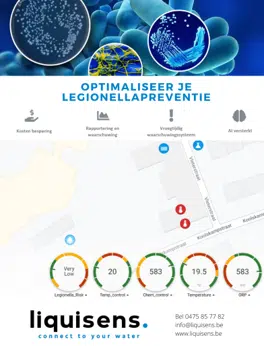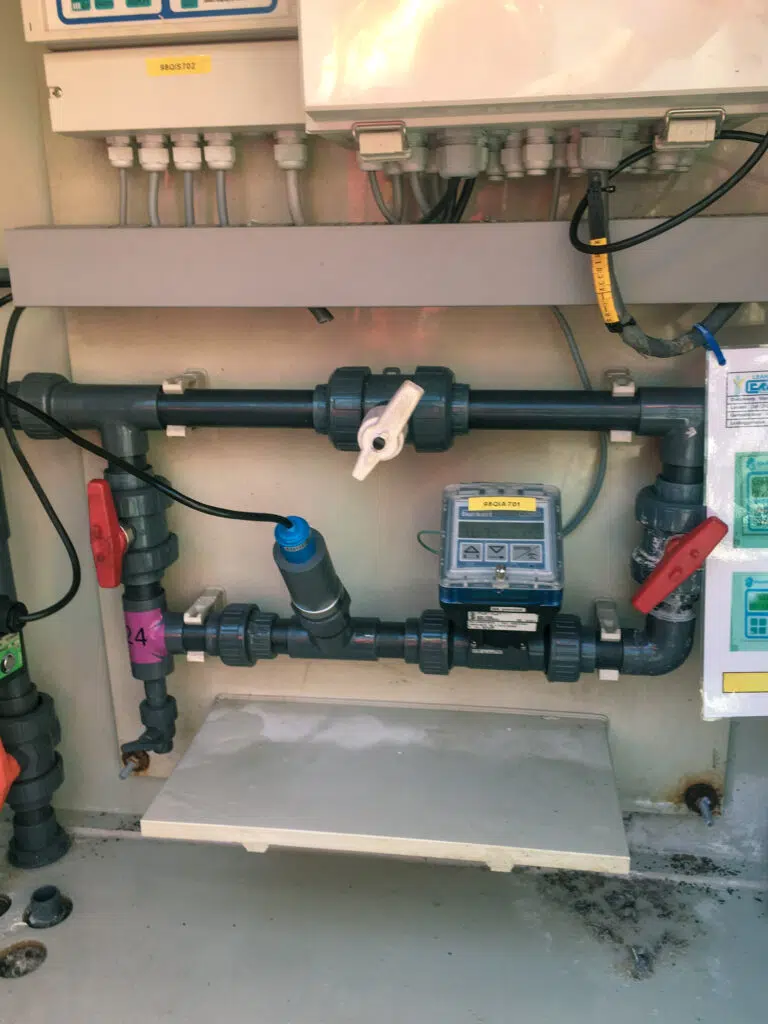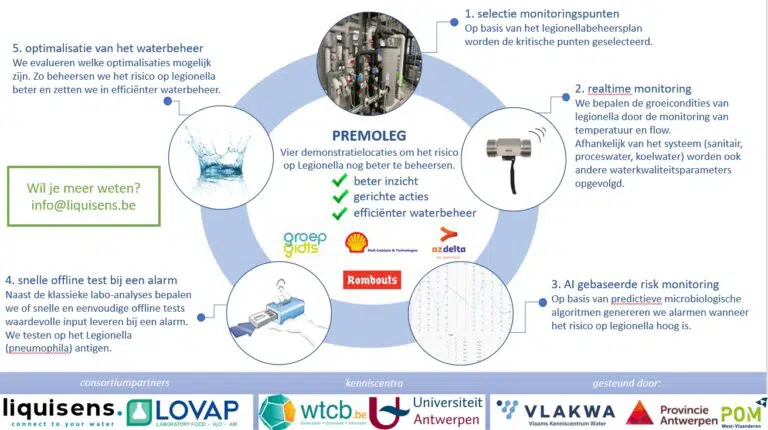
Our solution allows them to reduce the dosage of chemicals used to control legionella bacteria and reduce the number of flushes without negatively impacting the effectiveness of their treatment. The end result? Effective prevention of legionella at a lower cost and with less impact on the environment.






